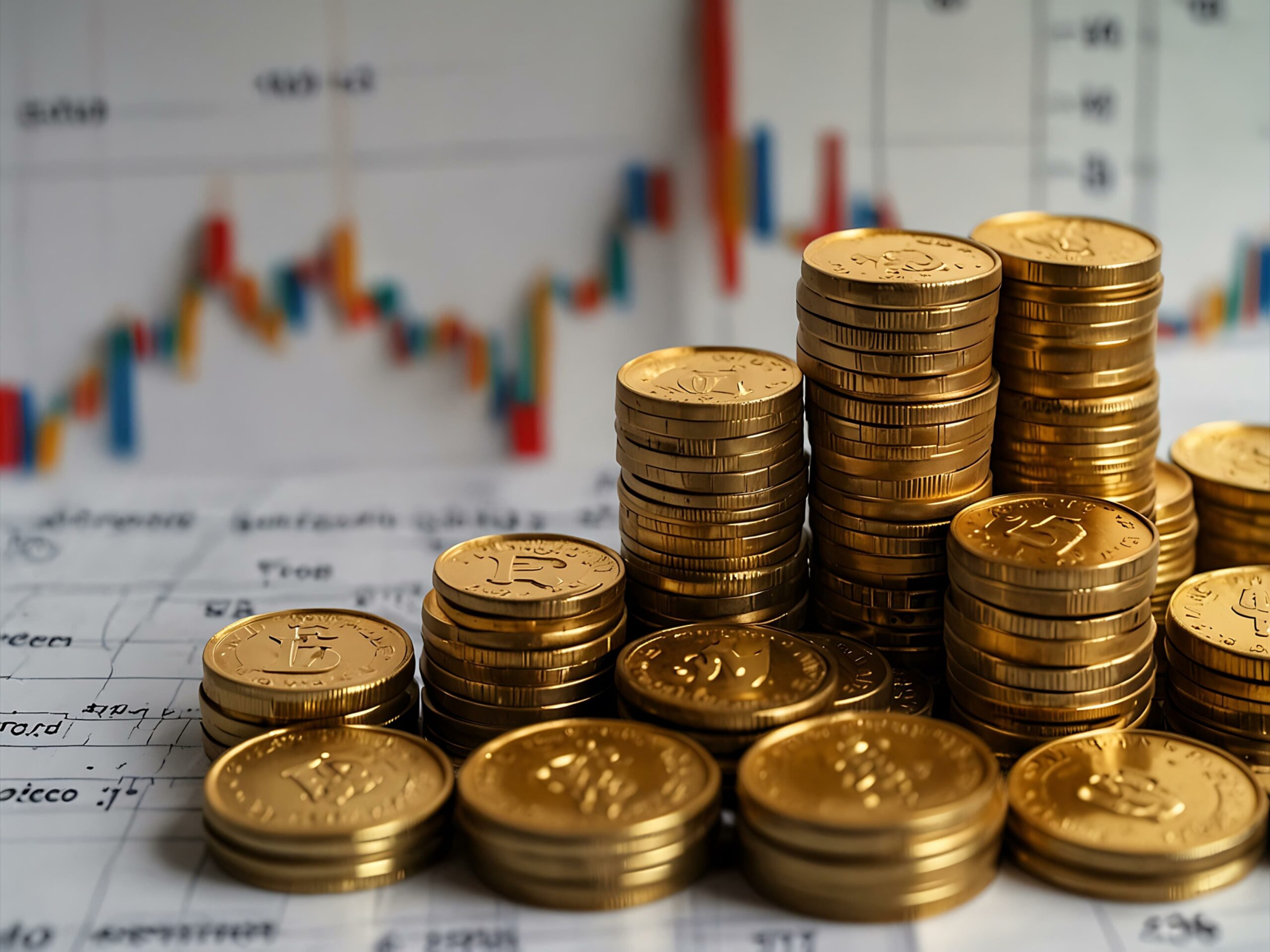It’s a good time to be a gold bug.
At the beginning of 2024, gold was trading at around $2,043 per ounce. At the end of last week it was a little higher than $2,330, marking a gain of more than 10%.
Looking further back, you’ll see that the yellow metal’s price was hovering around $1,300 five years ago. It’s come a long way.
Lawyer and investment banker James Rickards has long been bullish on gold. He previously forecasted that gold would reach $15,000 per ounce. Now, he’s raising that prediction to an even more optimistic figure.
“My latest forecast is that gold may actually exceed $27,000,” Rickards wrote in a recent column. “I don’t say that to get attention or to shock people. It’s not a guess; it’s the result of rigorous analysis.”
Behind the numbers
To establish a price prediction for gold, Rickards posed a straightforward question: “What’s the implied non-deflationary price of gold under a new gold standard?”
He explained that in a system in which dollars are freely exchangeable for gold at a fixed price, if gold price is too high, it will lead to investors selling gold for dollars and spending “freely.” Conversely, if gold price is too low, investors will “line up to redeem dollars for gold and then hoard the gold.”
Rickards highlighted that the U.S. M1 money supply is $17.9 trillion and assumed that maintaining confidence would require a 40% gold backing. He argued that this percentage was the legal requirement for the U.S. Federal Reserve from 1913 to 1946.
He then calculated that applying the 40% ratio to the $17.9 trillion money supply would require the U.S. to hold $7.2 trillion worth of gold.
According to the World Gold Council, the U.S. has 8,133 tonnes of gold reserves, or 261.5 million troy ounces. And that leads Rickards to the final step of his calculation.
“Applying the $7.2 trillion valuation to 261.5 million troy ounces yields a gold price of $27,533 per ounce,” he wrote.
A price tag of $27,533 for one ounce of gold would imply a staggering upside of more than 1,000%, relative to where the precious metal sits today.
Based on his analysis, Rickards’ advice is straightforward: “The lesson for you as an investor is to buy gold now.”
If you share this optimism, here’s a look at three ways to add gold to your portfolio.
Buy gold bullion
The most tangible way to invest in gold is to buy physical gold in the form of bars or coins.
Gold bullion can be purchased from reputable dealers and stored securely at home or in a safety deposit box.
The advantage of owning physical gold is its stability and tangibility, providing a sense of security and ownership that isn’t dependent on financial institutions. However, it requires secure storage and insurance, which can add to the overall cost of investment.
Invest in gold stocks/ETFs
Investors can also purchase shares of goldmining companies. When the price of gold rises, miners tend to enjoy bigger profits, potentially boosting the value of their stocks.
Adding goldmining companies to one’s portfolio can provide diversification. However, keep in mind that doing so also exposes investors to market risks and the performance of the underlying companies.
In addition, there are Exchange-Traded Funds (ETFs) that track the performance of gold. These ETFs aim to mirror the price movements of gold by holding physical gold or gold futures contracts.
Read more: Rich young Americans have lost confidence in the stock market — and are betting on these assets instead. Get in now for strong long-term tailwinds
Invest in a Gold IRA
Individual Retirement Accounts (IRAs) are a popular way to save for retirement, offering tax advantages that can help grow your savings over time.
Traditional IRAs allow you to contribute pre-tax income, with taxes deferred until you withdraw the funds during retirement. Roth IRAs, on the other hand, involve contributions made with after-tax dollars, providing tax-free growth and tax-free withdrawals in retirement.
A gold IRA is a specific type of IRA that allows investors to include physical gold and other precious metals in their retirement savings. Gold IRAs are appealing because gold is often seen as a hedge against inflation and economic uncertainty, helping to protect your retirement savings from market volatility.
If you share Rickards’ bullish outlook on the precious metal, a Gold IRA could be a valuable addition to your retirement strategy.


